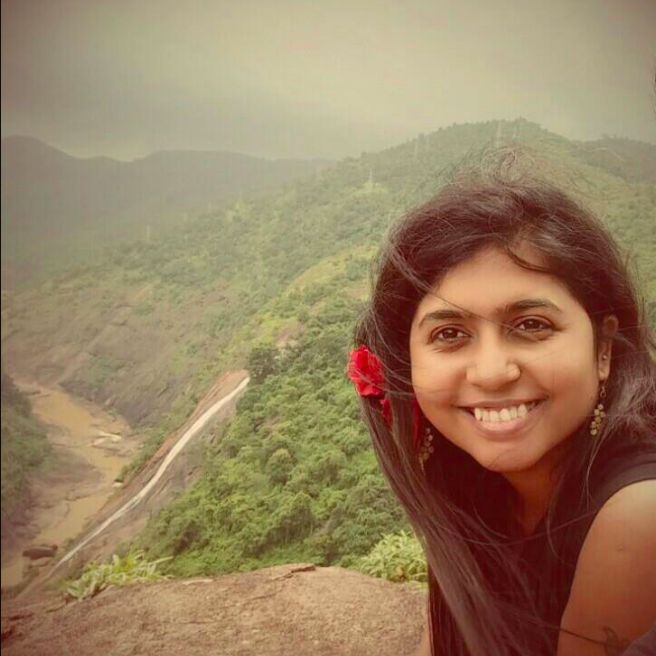Authenticity can seem like a risky venture in the current screen-obsessed age, wherein we constantly strive to fit in and be accepted by others. Sonia Vadlamani explains why it’s necessary to let go of the fear of being judged in order to cultivate an authentic life.
Being authentic in this technology-dominated era can be challenging, especially when we’re constantly bombarded with messages of who we ‘ought to be’, what we ‘should’ desire and how we ‘must’ express ourselves.
Consequently, many of us have at some point portrayed ourselves as who we think we are or want to be perceived as, rather than representing who we really are. The downside of portraying who we aren’t is that we’re telling ourselves that the real or true version of us isn’t worthy of being seen. This constant fear of being judged or rejected can chip away at our ability to be our most authentic self.
Why is it difficult to overcome inauthenticity?
As children, most of us were taught by parents, teachers and other shaping forces like society and religion to ‘fit in’ or conform to a prescribed set of rules and practices. As a result, we ingrain beliefs, thoughts and emotions and exhibit behaviors which allow us to ‘blend in’ and be accepted, be it to form connections, find love or pursue success. This need to fit in and do as we’re taught is stimulated by our “Adaptive Self”, which primarily plays the role of helping us function and coexist in the society in a purposeful way.
However, in our constant struggle to carve our niche in the society as we balance our inner-selves and our outer aspects, sometimes we tend to suppress or hide our true selves. This can prevent us from activating our “Authentic Self” and living a meaningful life in tune with our values and purpose.
What does being your authentic self involve?
“Authenticity is the daily practice of letting go of who we think we are supposed to be and embracing who we actually are,” states Brené Brown, research professor at University of Houston. Brown has spent decades studying shame, courage and vulnerability. Authenticity can mean different things to different people, but in general it refers to the ability to live by our values, speaking our truth with assertiveness, and developing the courage to allow our true selves to be seen.

Authenticity means embracing who you truly are
Indeed, authenticity is a fundamental component of happiness. A study by Alex M Wood et al revealed that authenticity is an integral part of well-being. Being authentic can also improve self esteem as well as lower stress and anxiety.
8 ways to be your authentic self
Discovering our authentic self is essential for happiness and forming meaningful connections. Reclaiming authenticity involves identifying our core values, letting go of borrowed notions of perfection, and changing our perspective to see vulnerability as an act of courage, instead of something to be avoided.
Here are eight practical ways you can take steps to cultivate authenticity:
1. Identify your core values
Creating a connection with our true nature is essential for building our authentic self. Start by identifying some values that are fundamental for you: which make you happy and which are the values you cannot absolutely compromise upon? Incorporating visualization meditation into your daily routine can help the process of value identification.
For example, some of my core values for a happy and meaningful life are honesty and openness in relationships, kindness and empathy for myself and others, gratitude for the gifts I have in my life, along with constant learning for growth. Indeed, your core values arise from your own expectations, needs and experience, and need not be the same as anyone else’s.
“Authenticity can mean different things to different people, but in general it refers to the ability to live by our values, speaking our truth with assertiveness, and developing the courage to allow our true selves to be seen.”
Once you list down your core values, break each one down into three actionable steps that will help you live these values better. Since I value honesty and openness in my relationships I try to practise mindfulness, deep listening and forgiveness, so that I can live in closer alignment with my core values.
2. Start making conscious decisions
Sometimes, we wade through the day in auto mode without even contemplating if our thoughts and actions resonate with our authentic selves. Try observing yourself keenly to learn more about how you react to challenges, what motivates you, the nature of your social interactions, etc.
Notice which behaviors and settings evoke responses from your Adaptive Self, and which of these responses feel authentic to you. Once you’ve spotted the discrepancies between your actions and values, you can utilize this self-awareness to devise conscious statements and actions that resonate with your authentic self.
3. Devise and uphold your boundaries
“To free us from the expectations of others, to give us back to ourselves — there lies the great, the singular power of self-respect,” as Joan Didion, the renowned American writer famously quoted. Cultivating authenticity requires us to give up the temptation to appease others and the need to behave in a way that makes us more likeable. Indeed, being your authentic self is not always easy, and living by your principles may require a few difficult conversations, a potential job switch, or even ending a friendship if necessary.
RELATED: Uncomfortable truths – how to say 'no'
However, by being honest about our boundaries, we’re indicating to our subconscious that it’s OK to not be perfect all the time, thus developing self-validation. Authenticity allows us to share our vulnerability with appropriate boundaries in place, ie, with people who have the same values as you, and those who you feel comfortable with.
4. Instill mindfulness
If you're curious how to find happiness, mindfulness can help you find contentment in the small joys that each day brings, thus boosting your mood and overall happiness levels. Additionally, being mindful allows you to observe and understand how you feel and react towards various stimuli in your environment. Keeping physical reminders of mindfulness quotes and practising mindful listening are some effective ways to improve self-awareness and slowly cultivate your authentic self.
5. Exercise compassion towards yourself and others
Practising self-compassion allows us to be supportive, kind and accepting towards ourselves, in addition to boosting authenticity in relationships. That’s according to researcher Kristin Neff, who was the first to measure the construct for self-compassion. Practising loving-kindness meditation can prove to be an effective tool for reinforcing feelings of connection and kindness with oneself and others, thus aiding the development of one’s authentic self.

Practising compassion unlocks authenticity shutterstock/imtmphoto
6. Embrace vulnerability
We often shirk away from being authentic due to the fear of being potentially judged or getting distanced from people around us. Start by asking yourself what you are afraid may happen if you put yourself out there in a scenario that makes you feel vulnerable. Next, proceed to imagine what would happen if you avoided expressing your feelings or needs or asking for that raise that you think you undoubtedly deserve. Could the inability to share or express yourself potentially result in depression or self-sabotage?
Thereupon, remind yourself why it’s important for you to live your authentic self by overcoming the vulnerability hangover. Further, you can formulate a rational approach or well-devised plan for expressing your feelings and needs, in a way that is in sync with your authentic self.
7. Practise letting go
In her bestseller book The Gifts of Imperfection, Dr Brown reveals that letting go plays an essential role in cultivating your authentic self. While Brown’s research on shame and vulnerability largely reveal that most people allow their inhibitions to take over due to the fear of being emotionally exposed, she came across a group of outliers who reacted differently to such potentially uncertain situations. Dr Brown calls these outliers ‘the wholehearted’, and she named this way of living the ‘wholehearted living’.
“Cultivating authenticity requires us to give up the temptation to appease others and the need to behave in a way that makes us more likeable.”
According to her research, wholehearted living comprises of embracing imperfections and living life to one’s fullest potential, without letting the fear of other people’s opinions affect their beliefs and actions. Being your authentic self requires you to accept that what others think of you is none of your business, and cultivate the courage to let go of thought-patterns and limiting beliefs that no longer serve you.
8. Set goals for constant learning
Developing a growth mindset and being open to self-improvement through ongoing learning can help you attain your authentic self at a sustained pace. Your goals need not just be related to the pursuit of wealth and success – in fact, research points out that non-materialistic life goals lead to happiness as surely – if not more consistently – than materialistic goals. An objective as simple as integrating awe into your daily life can inspire you to learn new things about yourself and life around you.
Round-up: cultivating authentic self
While we are conditioned from an early age to suppress or hide our authentic self, authenticity is essential for building a life that brings us meaning and joy. Examining our true self to develop authenticity can be a long and cumbersome process, but the rewards in terms of greater life satisfaction and improved relationships make it worth the effort.
Main image: shutterstock/ESB Basic
happiness.com | The fine art of being: learn, practise, share
Are you a happiness.com member? Sign up for free now to enjoy:
■ our happiness magazine with practical life tips
■ share and support others in our happiness forum
Moral Courage | Mediation | Coaching
Written by Sonia Vadlamani
 Fitness and healthy food blogger, food photographer and stylist, travel-addict and future self journaler. Sonia loves to write and has resolved to dedicate her life to revealing how easy and important it is to be happier, stronger and fitter each day. Follow her daily pursuits at FitFoodieDiary or on Instagram.
Fitness and healthy food blogger, food photographer and stylist, travel-addict and future self journaler. Sonia loves to write and has resolved to dedicate her life to revealing how easy and important it is to be happier, stronger and fitter each day. Follow her daily pursuits at FitFoodieDiary or on Instagram.
Join the conversation
You are posting as a guest. If you have an account, sign in now to post with your account.
There are no comments to display.